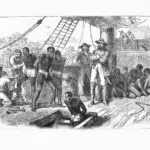Black History Month, which is celebrated each year during February, is a chance for Americans to learn details of their nation’s history that, unfortunately, are far too often neglected and pushed to the wayside. As the saying goes, Black history is American history — and it’s a varied and rich history. A wise nation honors and learns from its past. It refuses to let the most important facts about our shared and collective memory disappear into the depths of forgotten history. What happened in the past shapes and informs where we are heading in the future, and it’s of paramount importance to set aside a month for learning as much as we can about Black history.
History of Black History Month
Black History Month wouldn’t have been possible without Negro History Week’s creation in the United States in 1926. Famous historian Carter G. Woodson and the Association for the Study of Negro Life and History proclaimed the second week of February to be observed as Negro History Week. Since the inception of this event, the main focus was to encourage the teaching of the history of Black Americans in educational institutes, particularly at the primary level. The departments of education of Delaware, North Carolina, and West Virginia were very cooperative. The overall reception was lukewarm, but Woodson considered it a success and “one of the most fortunate steps ever taken by the Association.”
In February 1969, the idea for Black History Month was promoted by Black students and educators at Kent State University, followed by the first celebration of Black History Month on campus and local surroundings one year later. Fast forward six years and Black History Month was widely being celebrated across the country, and not only in schools, colleges, and community centers. In 1976, President Gerald Ford praised Black History Month, urging all citizens to “seize the opportunity to honor the too-often neglected accomplishments of Black Americans in every area of endeavor throughout our history.”
Education is a core theme of this holiday and providing Black students with access to education is a huge movement in the country. One way that many organizations do this is by providing scholarships. For students looking for funding, Schoalroo has a great database of scholarships for Black students. The creation of Black History Month also led to some controversy. Celebrating Black history for one month seemed too confining, with many labeling it downright inappropriate. Another concern was that Black History Month would glamorize the delicate subject and lead to Black historical figures being simplified as heroes.
Black History Month timeline
The National Association for the Advancement of Colored People is founded.
The precursor to Black History Month is started by historian Carter G. Woodson, the "Father of Black History."
Proposed by Black educators and students at Kent State University in 1969, the first Black History Month observance takes place one year later.
Gerald Ford urges Americans to honor the U.S. Bicentennial by also celebrating Black History Month.
Black History Month FAQs
Who is famous in Black History Month?
Martin Luther King, Jr., who fought for equal rights for Black people during the 1950s and ’60s; Thurgood Marshall, the first African-American justice appointed to the United States Supreme Court in 1967; Mae Jemison, who became the first female African-American astronaut to travel to space in 1992; and Barack Obama, who was the first African-American president of the U.S.
What is the origin of Black History Month?
The observation of Black History Month dates back to 1915, when Carter G. Woodson, now known as the ‘Father of Black History,’ created an organization called the Association for the Study of Negro Life and History. In 1926, Woodson initiated the first Negro History Week in February.
Why was February chosen as Black History Month?
Woodson chose February specifically because it covered the birthdays of Frederick Douglass (February 14) and Abraham Lincoln (February 12).
How to Observe Black History Month
Visit a museum
History comes alive in a nation's museums, and many of these institutions have events, conferences, and celebrations surrounding Black History Month. Get out there and see first-hand the American nation's collective historical treasures.
Contact an elected official
One of the best ways to get the ball rolling toward a better society is by contacting members of Congress. Ask them what they have planned for Black History Month and what specific legislative actions they plan to take to ensure that your community never backtracks in its pledge to provide opportunities for each and every person.
Read, read, and read some more
Libraries and bookstores — not to mention online repositories and booksellers — are positively overflowing with amazing works of Black literature, history, and biography. Find a book about a piece of Black history that you were previously unaware of and get educated.
5 Super Interesting Facts About Black American History
Rosa Parks wasn't the first
Claudette Colvin, a 15-year-old girl, refused to move to the back of a bus nine months before Parks did.
MLK improvised his most famous speech
Although he had prepared notes, Martin Luther King Jr. improvised much of his "I Have A Dream" speech.
Esther came before Betty
The iconic cartoon character Betty Boop was modeled after a Harlem jazz singer named Esther Jones.
There were Black senators in the 19th century
The first Black U.S. senator was Hiram Revels, who took office in 1870.
Satchel Paige was baseball's first black hall-of-famer
Pitcher Satchel Paige was the first Black player to be inducted into the Major League Baseball Hall of Fame.
Why Black History Month is Important
The past isn't dead. It's not even past!
Anybody who pays even a little attention to American social affairs and politics knows that there's still much work to do in order for the nation to truly live out its creed that everybody is "created equal." The lessons of Black History Month provide us with a way forward by examining our past.
It inspires us
There are so many stories that have yet to be told about the history of Black America. Black History Month inspires us to search beyond the typical — and to seek out the extraordinary. The stories are waiting; we just have to go and find them.
History is also about the future
Martin Luther King Jr. said that "history books ... had almost completely ignored the contribution" of American Black people throughout history. Awareness of this undeniable fact can help the nation chart its course to a more enlightened age for every American.
Black History Month dates
| Year | Date | Day |
|---|---|---|
| 2025 | February 1 | Saturday |
| 2026 | February 1 | Sunday |
| 2027 | February 1 | Monday |
| 2028 | February 1 | Tuesday |
| 2029 | February 1 | Thursday |





























































































































